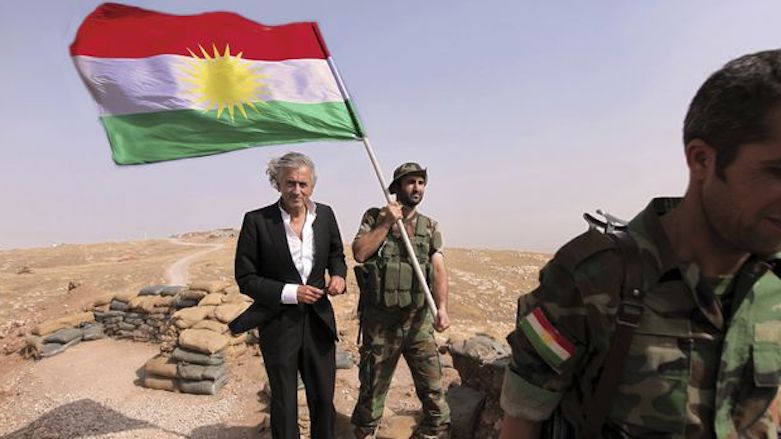Bernard-Henri Levy's 'Peshmerga' to be shown on Capitol Hill

WASHINGTON DC, United States (Kurdistan 24) – The renowned French intellectual, author, and film-maker, Bernard-Henri Levy, will speak in Washington on Tuesday, as his documentary, Peshmerga, is shown on Capitol Hill.
Sen. Roger Wicker (R, Mississippi) and Rep. Ralph Abraham (R, Louisiana) are sponsoring the unusual event.
Levy’s stunning documentary, filmed in 2015, over a six-month period, depicts the tough fight of the Kurdish forces as they battled the Islamic State (IS) in northern Iraq, as well as the camaraderie of brothers-in-arms that they shared.
The film movingly illustrates what motivated the Peshmerga to fight and sacrifice, life and limb. It was for Kurdistan.
“The screening of Peshmerga within the halls of Congress is part of the awakening of America in support of Kurdistan,” Levy told Kurdistan 24.
“This event will, hopefully, galvanize US policy makers to speak up for our allies and friends on the ground in Iraq and Syria,” he said.
The Guardian has hailed Peshmerga as “an intellectually gripping tribute” to the Kurdish fighters.
The film will be followed by a panel discussion with Levy and H.E. Bayan Sami Abdul Rahman, the Kurdistan Regional Government (KRG) Representative to the United States.
Sen. Wicker, an Air Force veteran, serves on the Senate Armed Services Committee. He was an early advocate of America’s working with the Peshmerga to fight IS.
Rep. Abraham serves on the House Armed Services Committee. He visited the Kurdistan Region in August 2017, shortly before the independence referendum. Abraham spent a full week there, after which he hailed the Peshmerga as “great warriors, who fight side by side with our American men and women.”
Although IS no longer occupies much territory, it still poses a significant threat to the US and its allies, and it remains a major issue for Congress.
Indeed, on Wednesday, a senior official from the Department of Homeland Security warned that IS might be planning a terrorist attack, using chemical weapons, on US territory.
IS sleeper cells have gone underground, and sporadic attacks in Iraq continue.
Additionally, the fight against IS led to the massive dislocation of segments of the Iraqi population. Approximately 2.5 million Iraqis have not yet been able to return home—some 800,000 of them remain in the three Kurdish provinces of Dohuk, Erbil, and Sulaimani, according to UN statistics.
Moreover, much work needs to be done regarding reconstruction and political stabilization to prevent the re-emergence of another IS.
At the same time, the Iranian-backed militias that emerged over the course of the fight against the extremist group have emerged as a serious challenge to the future of post-war Iraq.
Editing by Karzan Sulaivany
